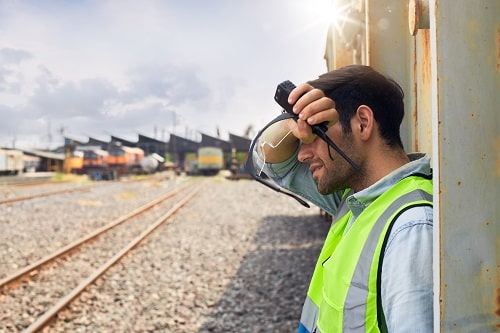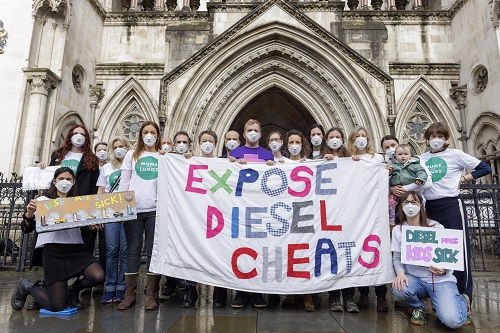The shift to a green economy will create green jobs within new and emerging sectors, while those working in existing sectors will have to gain the requisite green skills to take advantage of the business value-creation opportunities that come from embedding sustainability across the whole organisation.
Opinion
All jobs greener: why we need workforce transformation for a sustainable future
In response to the global need for action, the UK government has set out the need for the UK to lead in transforming our economy so that it is ‘net zero’ in totality by 2050. It is also in the process of setting legally binding long-term environmental targets through the new Environment Act.
To achieve these long-term carbon and environmental outcomes, all organisations will be expected to commit to being net zero and contribute to mitigating and reversing environmental damage. Doing so while remaining economically viable will require different ways of operating from top to bottom, placing new demands on workers at all levels.
A YouGov poll commissioned by IEMA for the launch of A blueprint for a green workforce transformation, jointly published by IEMA and Deloitte at the end of April, found that 56 per cent of the British public had not heard of green jobs, with 62 per cent not understanding what the term green skills meant, and 65 per cent said they didn’t have any access to green skills training. There’s clearly a lot to do to help inform the public of the opportunities and embed ‘green thinking’ across the UK workforce.

Martin Baxter, deputy CEO, IEMA (Institute of Environmental Management & Assessment).
Green jobs vs green skills
The IEMA and Deloitte report paints a picture of an accelerating drive to build a green workforce across the whole of the UK economy. In part this is underpinned by a range of initiatives driven by government, including accepting the recommendation from the Green Jobs Taskforce to achieve a target of creating two million green jobs by 2030; a new Sustainability and Climate Change education strategy from the Department for Education that seeks to embed sustainability throughout the whole of education and children’s services provision; and the Net Zero Strategy, that includes the establishment of a Green Jobs Delivery Group to help translate ambition into action.
In developing a coherent response to enhancing the capabilities of the UK workforce to meet the future challenges, we find it useful to distinguish between ‘green jobs’ and ‘green skills’, as an ‘all jobs greener’ approach will be needed to truly transform the economy to one that has sustainability at its heart.
Green skills: An umbrella term to refer to the technical skills, knowledge, behaviours and capabilities required to tackle the environmental challenges we face, and to unlock new opportunities for growth.
Green jobs: Used to signify employment in an activity that directly contributes to – or indirectly supports – the achievement of the UK’s net zero emissions target and other environmental goals, such as nature restoration and mitigation against climate risks (from The Green Jobs Taskforce Report, 2021).
Through our research, we identified four shifts in the transition to green jobs and green skills:
- Expansion of skills and scope of existing specialist sustainability roles. Acceleration towards green economy activities results in deeper expertise and an elevation of sustainability professionals to the C-suite
- Increased need for green skills in non-specialist roles. The impact of mainstreaming of ‘green’ across the whole economy results in a significant change to the work and the ways of working of the existing workforce
- Transition of workforces from unsustainable sectors. The UK labour market is already experiencing, and will continue to see, a period of workforce transition from high carbon to low carbon industries. These can often be concentrated geographically and there’s a real need to help communities to prosper through green transformation
- Demand for green skills in new green sectors and organisations. The green economy creates the need for unique work and worker requirements, which creates new green jobs in new industries.
Characteristics of a winning organisation in the green economy
To unlock success in the green economy, sustainability leaders pointed to the need for organisations to have certain winning characteristics that will be critical for establishing an environmentally-conscious culture focused on value capture. These include:
- Courageous leadership that takes calculated risks
- Intentional enterprise-level transformation, design and management – shaping the organisation to success
- Environmentally sustainable mindset as the norm for everyone
- Mission-based teams that solve for the unpredictable
- Investment in a diverse and inclusive workforce
- Engagement in an ecosystem of strategic partnerships.
Embedding the skills, knowledge, behaviours and capability required to succeed in the future green economy requires a deliberative approach to workforce planning. The tools developed as part of the IEMA/Deloitte blueprint provide a structured framework for organisations, both public and private, to: assess their readiness to address green challenges; evaluate their ability to capture value from green skills through internal capabilities; and plan their workforce development against the ‘model organisation’, which is described through 11 job families (including leadership and executive board, finance, R&D/innovation/product design and procurement/supply chain etc).
By evaluating maturity across these three dimensions, organisations can focus on removing blockers and unlocking enablers to move along a journey of understanding – developing – performing – leading as they see to become fit for a sustainable future.
There is little doubt that the transition to a sustainable economy – one which is net zero and environmentally restorative by design – will require a workforce that has the skills and capabilities to drive change at pace and scale. Given that more than 80 per cent of the 2030 workforce is already in employment, this will require a massive reskilling and upskilling of those already in work, as well as preparing young people with the knowledge and understanding to be an active part of the solution.
As the professional body for sustainability practitioners, at IEMA we’re committed to supporting organisations to plan their workforce development to unlock value creation through the transition, and to help catalyse others to provide support in critical areas such as procurement and design.
We have recently developed two new net zero training courses to help organisations plan their best practice responses to the climate crisis.
The Pathways to Net Zero course is tailored to people who might be responsible for their organisation’s net zero approach and are already strategically building this into their plans, and Introduction to Net Zero is a course designed for people wanting to gain a basic knowledge of what net zero means and raising awareness within their organisation. We know that to have any impact on reaching our net zero targets by 2050, we must have a green skilled workforce and at IEMA we are making sure we help prepare organisations for a greener future.
Martin Baxter is deputy CEO of IEMA (Institute of Environmental Management & Assessment).
IEMA’s Transition to Net Zero insights, guidance and case studies at:
iema.net/transition-to-net-zero
Greening your organisation for a green workforce transformation, from IEMA and Deloitte, at:
iema.net/all-jobs-greener
OPINION

Heat at work: a silent killer
By Halshka Graczyk and Lacye Groening, ILO on 07 April 2025
Workers across the world are increasingly being exposed to excessive heat with serious implications for their safety and health. It is therefore vital that governments, employers and workers’ organisations develop, share and implement practical and low-cost strategies and measures for effectively reducing the risk from heat stress at work.

Making good work the foundation
By Mike Robinson FCA, British Safety Council on 07 April 2025
In 2024, for the first time, the UK dropped out of the list of the top 20 happiest countries: according to the World Happiness Index. This year, the UK rests in 23rd place, slightly ahead of the US and behind the Nordic countries, Germany, the UAE and others.

The air we share: why tackling pollution protects us all
By Scott Paul, Mums for Lungs on 04 April 2025
Air pollution is often invisible; its impact is anything but. Whether you’re a parent worried about your child’s lungs, a construction worker breathing exhaust fumes, or a commuter passing through busy streets, polluted air is everyone’s problem.



